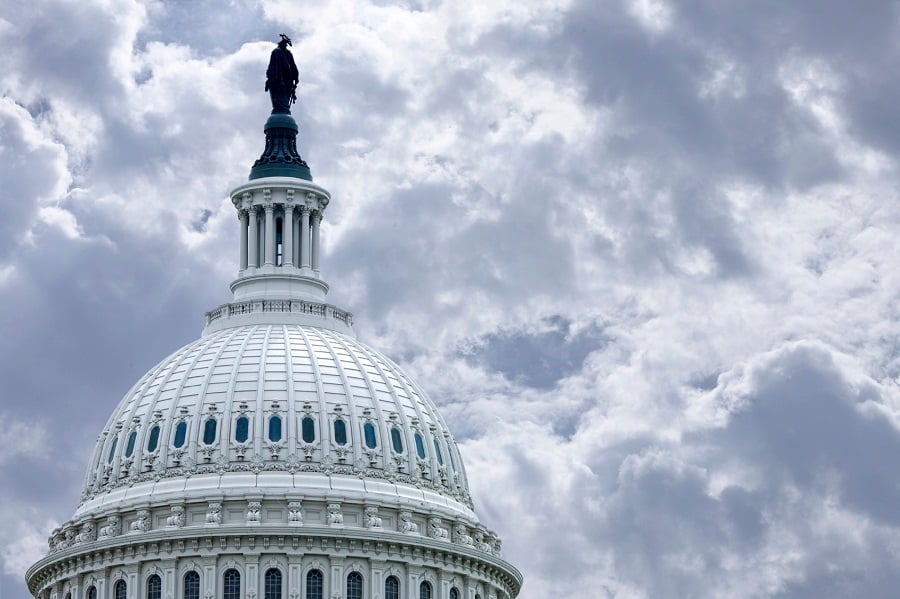

The House Ways and Means Committee unanimously approved major retirement savings legislation on Wednesday that builds on congressional efforts to expand workplace plans and help workers and retirees boost their nest eggs.
The panel advanced the Securing a Strong Retirement Act to the House floor on a voice vote with no lawmaker dissenting. The measure, which was reintroduced on Wednesday, is a follow-up to the landmark SECURE Act, which was enacted two years ago.
The 148-page bill, known as SECURE 2.0, contains dozens of provisions that would increase retirement plan coverage and enable employees and retirees to save more money for their post-work years.
The bill would increase the required minimum distribution age for retirement plans from 72 to 75 over 10 years.
Other provisions would expand auto-enrollment and auto-escalation in company retirement plans; increase tax incentives for small businesses to establish plans; boost catch-up contribution limits for people between the ages of 62 and 64; allow employers to match an employee’s student-loan payment with a contribution to the employee’s retirement plan; and enable greater use of lifetime income products like annuities in retirement plans.
“This bill will expand coverage and increase retirement savings and make a number of simplifications and clarifications of the retirement plan rules,” Ways and Means Chairman Richard Neal, D-Mass., said before the committee vote. “I am really proud of the bipartisan work we have done here to help Americans prepare for a financially secure retirement.”
Following the vote, Neal added: “This is a really good day for the American family and a very good day for the Ways and Means Committee.”
The bill was co-authored by Rep. Kevin Brady, R-Texas and the ranking member of the Ways and Means Committee.
“We are building on the tremendous success of the SECURE Act to help more Americans save for retirement at every stage in their career,” Brady said at the committee meeting. “I’m honored that today’s markup is a demonstration of how Congress can achieve great things for all Americans.”
It’s not clear when the bill will be scheduled for a vote on the House floor.
Similar legislation was introduced last year in the Senate by Sens. Rob Portman, R-Ohio, and Ben Cardin, D-Md., as well as Sens. Chuck Grassley, R-Ia., Maggie Hassan, D-N.H., and James Lankford, R-Okla.
Those Senate bills will have to be reintroduced this year. It’s not yet clear how high a place retirement savings legislation will have on the chamber’s agenda.
But SECURE 2.0 started its legislative journey with a strong bipartisan push on Wednesday. Nearly every one of the more than three dozen lawmakers on the Ways and Means committee praised the bill during the almost two-hour meeting. Many cited provisions they authored or championed that were in the measure.
“The package includes so many important initiatives that I fear five minutes is not enough time to talk about all of them,” said Rep. Gwen Moore, D-Wisc.
Lawmakers also noted that the comity during the committee meeting contrasted with the partisan tension that animates so many debates in Congress.
“I am thrilled today to be here and doing this bipartisan legislation,” said Rep. Jackie Walorski, R-Ind. The legislation “helps hard-working Hoosiers save more money for retirement.”

A new proposal could end the ban on promoting client reviews in states like California and Connecticut, giving state-registered advisors a level playing field with their SEC-registered peers.

Morningstar research data show improved retirement trajectories for self-directors and allocators placed in managed accounts.

Some in the industry say that more UBS financial advisors this year will be heading for the exits.

The Wall Street giant has blasted data middlemen as digital freeloaders, but tech firms and consumer advocates are pushing back.

Research reveals a 4% year-on-year increase in expenses that one in five Americans, including one-quarter of Gen Xers, say they have not planned for.
Orion's Tom Wilson on delivering coordinated, high-touch service in a world where returns alone no longer set you apart.
Barely a decade old, registered index-linked annuities have quickly surged in popularity, thanks to their unique blend of protection and growth potential—an appealing option for investors looking to chart a steadier course through today's choppy market waters, says Myles Lambert, Brighthouse Financial.
